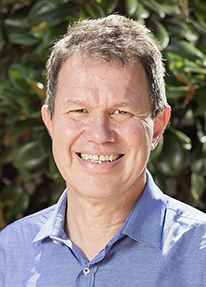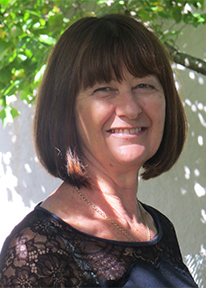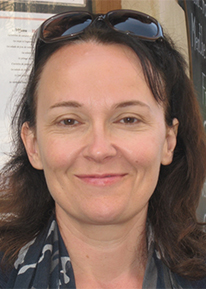One Health Aotearoa Symposium 2019
Our fifth One Health Aotearoa symposium was held at the University of Otago, Wellington on 10-11 December 2019.

The aim of our One Health Aotearoa symposia is to bring together experts from the fields of animal, human and environmental health in order to address priority One Health issues in Aotearoa, New Zealand.
One Health aims to improve health and well-being through integrated, cross-sectoral, and whole-of-society approaches to health hazards. While infectious diseases research remains at the core of the Centre’s research programme, our 5th symposium was opened up to the wider One Health context.
5th OHA Symposium programme
Session 1
- Lyn Carter, University of Otago
PLENARY – Tokotoko rangi – the spear from heaven. Mātauranga Māori, climate change, and health [PDF, 800KB] - Sherif Ammar, University of Otago, Wellington
Intercepted mosquitoes at New Zealand’s ports of entry, 2001 to 2018: Current status and future concerns - Petra Pearce, National Institute of Water and Atmospheric Research
Climate change – what does it mean for New Zealand? [PDF, 1.7MB] - Nicola King, Institute of Environmental Science and Research
Pathogenic Vibrio in New Zealand: Coordinating efforts to understand a cross-sectoral emerging issue
Session 2
- Tanya Soboleva, Ministry for Primary Industries
Microbiological risks associated with the consumption of raw milk. Have these changed since 2014? - Carlos Campos, Cawthron Institute
Knowledge and uncertainty in developing sanitary profiles for recreational and shellfish growing waters [PDF, 1.6MB] - Sophie van Hamelsveld, University of Canterbury
Surface water and mahinga kai as vectors of antibiotic resistance [PDF, 1,6MB]
Session 3
- Samuel Sheppard, University of Bath
PLENARY – Campylobacter ecology and evolution [PDF, 1.8MB] - Sabrina Greening, Massey University
Whole-genome sequencing: a new steppingstone in epidemiological investigations - Jonathan Marshall, Massey University
Where did it come from? Attributing human cases of disease to sources [HTML] - Jack Heinemann, University of Canterbury
Unexplored risks of new generation pesticides, cosmetics and food preservative agents [PDF, 900KB] - Christina Straub, Institute of Environmental Science and Research
Culture-independent typing using metagenomics –tracking gonorrhoea in New Zealand
Session 4
- Kristin Dyet, Institute of Environmental Science and Research
The global antimicrobial resistance crisis: where does New Zealand stand? - Mark Bryan, VetNZ
Teaching old dogs new tricks- can the dogs invent the tricks [PDF, 1MB] - Stephen Ritchie, University of Auckland
Reducing expectations for antibiotics in patients with upper respiratory tract infections: A randomised controlled trial - Scott McDougall, Cognosco, AnexaFVC
Antimicrobial use in dairy cattle in New Zealand: evidence for change [PDF, 2.3MB]
Session 5
- OHA Poster Pitch – 1 minute flash presentations
- OHA Poster Session
Session 6
- Brent Gilpin, Institute of Environmental Science and Research
Who pooed in my water, what’s the health risk from different sources of poo, and how do we keep our water safe for drinking and recreation? [PDF, 2.5MB] - Meredith Davis, Massey University
Presence of antimicrobial resistant bacteria and Shiga toxin-producing Escherichia coli in three Canterbury rivers - Russell Death, Massey University
Does land use effect pathogens in New Zealand drinking water supplies? [PDF, 1.1MB] - Paul Ogbuigwe, Massey University
The role of protozoan genotypic diversity in humans: Implications for the epidemiology of cryptosporidiosis and giardiasis in New Zealand [PDF, 600KB]
Session 7
- Anthony Capon, Monash University
PLENARY – Planetary Health: Protecting and promoting health in the Anthropocene epoch - Jackie Benschop and Gerard Prinsen, Massey University
An interdisciplinary approach to understanding zoonoses from Tanzania to New Zealand - James Dunk, University of Sydney
One Health? The divergence of physical and mental healths in the shadow of planetary crisis - John Roche, Ministry for Primary Industries
Regaining consumer trust in science in a digital age [PDF, 3.4MB]
Session 8
- Jacqueline Norris, University of Sydney
Q fever and companion animals: sentinels or source? - Leah Grout, University of Otago, Wellington
Zoonotic diseases, livestock densities, social and environmental factors in New Zealand [PDF, 500KB] - Andrew Gormley, Manaaki Whenua – Landcare Research
Roll-back eradication of bovine tuberculosis (TB) from wildlife in New Zealand: Concepts, evolving approaches, and progress [PDF, 2.5MB] - Julie Collins-Emerson, Massey University
Leptospirosis vaccination best practice: Let’s get real [PDF, 1.5MB] - Kate Thomas, University of Otago
Investigating non-typhoidal Salmonella in East Africa – a One Health approach - Jackie Wright, Institute of Environmental Science and Research
Ki uta ki tai: A holistic concept for managing Shiga toxin-producing Escherichia coli in New Zealand [PDF, 1.7MB]
Session 9
- Nigel French and David Murdoch, One Health Aotearoa Co-directors
OHA update and discussion session
Plenary speakers
 Anthony Capon
Anthony Capon
Tony Capon directs the Monash Sustainable Development Institute and holds a chair in Planetary Health in the School of Public Health and Preventive Medicine at Monash University.
Tony is Ngai Tahu iwi and was born on a sheep farm in South Otago. An Australian trained public health physician, his research focuses on urbanisation, sustainable development and human health.
Tony is a former director of the International Institute for Global Health at United Nations University (UNU-IIGH), and has previously held professorial appointments at the University of Sydney and Australian National University. He is a member of the Rockefeller Foundation–Lancet Commission on Planetary Health.
 Lyn Carter
Lyn Carter
Dr Lyn Carter (Kāi Tahu, Kāti Mamoe, Waitaha Iwi) is a Senior Lecturer at Te Tumu, School of Māori, Pacific and Indigenous Studies, University of Otago. Lyn is Programme coordinator as well as a lecturer for the Indigenous Studies Programme in Te Tumu. Lyn also contributes lectures and co-ordinates the interdisciplinary approach to climate change course housed in the Faculty of Law.
Lyn is Principle Investigator for two National Science Challenge Research Programmes: The Bio Heritage Challenge project explored the use of Indigenous knowledge in climate change adaptation for mahika kai (resources) in her own hapū region; and The Building Better Homes, Towns and Cities Challenge project that investigated how Matauranga Maori could become an integral part of the New Zealand Cadastral system in urban and semi-urban planning and development.
Her main research area is environmental literacy with a key focus on Indigenous development and sustainability in the context of climate change. Lyn has published widely in Academic Journals and books, and presented at a number of International and national conferences, including as invited keynote speaker. Her most recent publications include the book Indigenous Pacific Approaches to climate change: Aotearoa New Zealand (Palgrave McMillian Series in Disaster Studies ); and Kā Rūnaka expectations for oil and gas companies in East Otago (a Runaka engagement policy).
Lyn has recently been appointed to the Age Concern Advisory Panel (Ministry for Social Development); is a board member for The Polynesian Society (University of Auckland); and is the Kāti Huirapa Rūnaka representative for Toitū, Otago Settlers Museum, and the Otago Natural History Trust that oversees Orokonui Eco Sanctuary. Her other key role for the Rūnaka is developing the climate change strategy alongside Rūnaka rangatahi (youth).
 Jacqueline Norris
Jacqueline Norris
Jacqui Norris is a Professor of Veterinary Microbiology and Infectious Diseases at the Sydney School of Veterinary Science, at the University of Sydney. She is a registered practicing veterinarian and is passionate about practical research projects and education programs for veterinary professionals, animal breeders and animal owners.
Her main research areas include: 1) Development of diagnostics and treatments for companion animal viral diseases; 2) prevention of Q fever and role of companion animals and wildlife in the epidemiology; 3) Multidrug resistant (MDR) Staphylococcus species in all animals including humans; 4) Knowledge, attitudes and barriers to veterinary antimicrobial stewardship; and 5) aetiology and diagnosis of chronic kidney disease in domestic and zoo Felids.
 Samuel Sheppard
Samuel Sheppard
Sam Sheppard is Professor and Director of Bioinformatics at the Milner Centre for Evolution (University of Bath), Co-PI of MRC-CLIMB (Cloud Infrastructure for Microbial Bioinformatics) and honorary Professor of Microbiology at Swansea University. Before joining Bath from Swansea in 2016, he worked for nearly ten years at the University of Oxford as RA and Wellcome Trust Fellow.
Sam’s research centres on the use of genetics/genomics and phenotypic studies to address complex questions in the ecology, epidemiology and evolution of microbes. His most recent interest focuses upon comparative genome analysis to describe the core and accessory genome of pathogenic bacteria (Campylobacter, Staphylococcus, Helicobacter and Escherichia coli) and how this is related to population genetic structuring, the maintenance of species, and the evolution of host/niche adaptation and virulence.
One Health Aotearoa Symposium archives
- Visit the 7th One Health Aotearoa Symposium presentations archive
- Visit the 6th One Health Aotearoa Symposium presentations archive
- Visit the 5th One Health Aotearoa Symposium presentations archive
- Visit the 4th One Health Aotearoa Symposium presentations archive
- Visit the 3rd One Health Aotearoa Symposium presentations archive
- Visit the 2nd One Health Aotearoa Symposium presentations archive